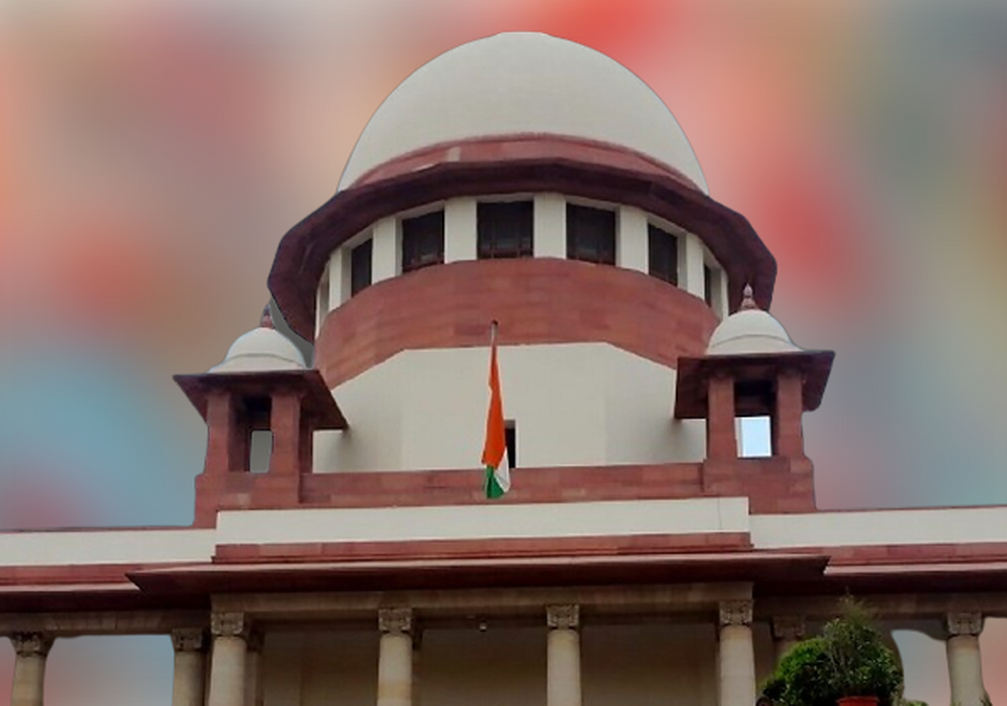Rights of undertrial prisoner guaranteed under Article 21 of Constitution can’t be allowed to be defeated on technicalities of procedure: Delhi HC

Read Judgment: Abhishek vs. NCT of Delhi
Pankaj Bajpai
New Delhi, October 20, 2021: The Delhi High Court has recently held that the order of remanding an undertrial or its extension is a judicial function requiring due application of mind, so as to ensure that the rights of undertrial prisoners to seek default bail are not defeated despite the legislative mandate.
The Bench of Justice Manoj Kumar Ohri therefore directed that the Magistrate/concerned Court shall not mechanically extend the period of custody for the maximum period of 15 days as prescribed /s 167(2) of CrPC, while extending the custody of an undertrial prisoner.
The background of the case was that the petitioner (Abhishek) was arrested on January 18, 2020 and on being produced before the Metropolitan Magistrate on January 19, 2020, was sent to judicial custody.
Later, the judicial custody was extended from time to time, till April 29, 2020 and in the meanwhile, the time period of 90 days prescribed for filing the charge sheet expired on April 18, 2020.
After considering the pleadings, Justice Ohri found that it is well settled that the rights of an undertrial prisoner guaranteed under Article 21 of the Constitution of India cannot be allowed to be defeated on technicalities of procedure.
“The petitioner after being arrested on 18.01.2020 was first produced before the Magistrate on 19.01.2020 when he was remanded to custody. The offence that the petitioner is charged with being one falling under Section 304B IPC, which is punishable with imprisonment for a period exceeding 10 years or with imprisonment for life or death, the maximum period for which the petitioner could have been put under judicial custody was 90 days. The said period admittedly came to an end on 18.04.2020. However, in between, when the petitioner was produced before the Jail Visiting Magistrate on 15.04.2020, the concerned Magistrate without any application of mind and rather unmindful of the fact that 90 days were expiring on 18.04.2020, mechanically extended the petitioner’s judicial custody till 29.04.2020”, observed Justice Ohri.
The High Court went on to observe that an order remanding an accused to custody is not an empty formality and at that stage, the Magistrate is required to apply his mind for the necessity of remand.
The 60th or 90th day of custody assumes great significance as in the event of non-filing of charge sheet, a right u/s 167(2) CrPC, which is held to be an indefeasible and fundamental right, accrues in favour of the accused, and to ensure that this right does not get defeated in any manner, an obligation is cast upon the Magistrate to inform an undertrial prisoner about accrual of such right, added the Court.
The High Court made it clear that once the maximum period provided for an investigation prescribed under the first proviso (a) to Section 167(2) Cr.P.C. is over and no charge sheet is filed, the accused becomes entitled to be released on bail, more appropriately called the ‘default bail’.
The right to seek default bail u/s 167(2) CrPC is a fundamental right and not merely a statutory right, which flows from Article 21 of the Constitution of India, added Justice Ohri.
The High Court clarified that the undertrial prisoner, shall be produced before the concerned Court on the next day i.e., on the 61st, 91st or 181st day as the case may be, so that he can be duly informed of his fundamental right to seek default bail if no charge sheet is filed in the maximum period prescribed or the permitted extended period of investigation, as the case may be.
The concerned District Legal Services Authority as well as the Jail authorities shall also ensure that the remand Advocates/legal aid counsels posted in criminal courts are instructed to keep an undertrial informed of his right to seek default bail and the date of accrual of such right, added the Court.
Sign up for our weekly newsletter to stay up to date on our product, events featured blog, special offer and all of the exciting things that take place here at Legitquest.




Add a Comment